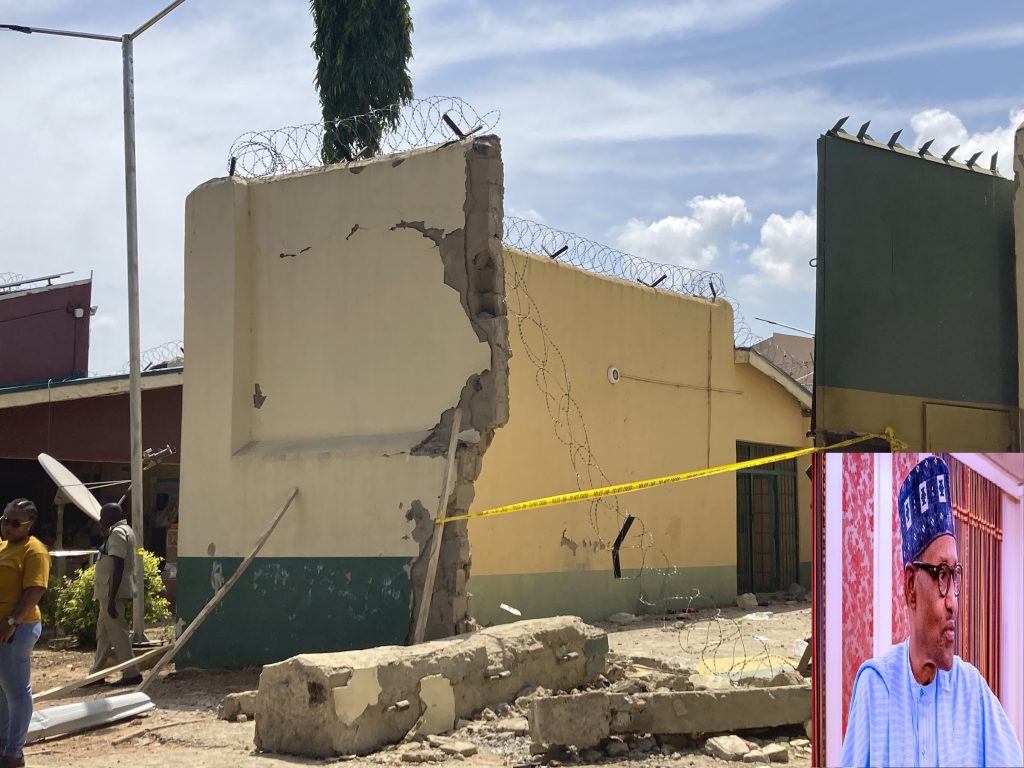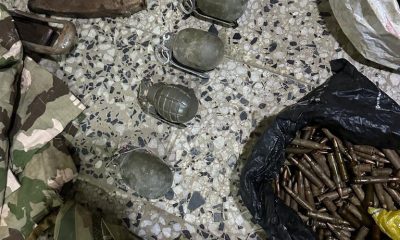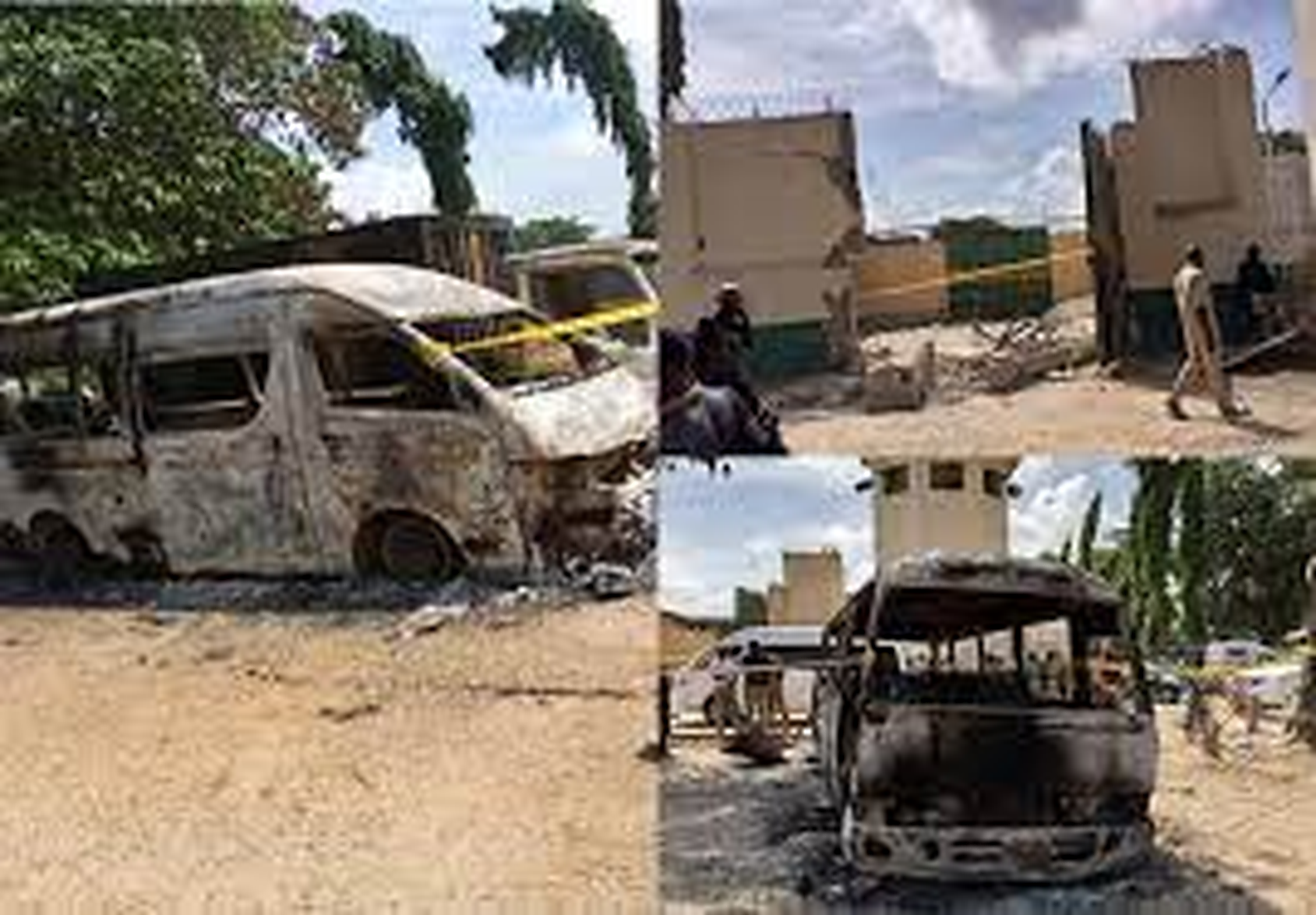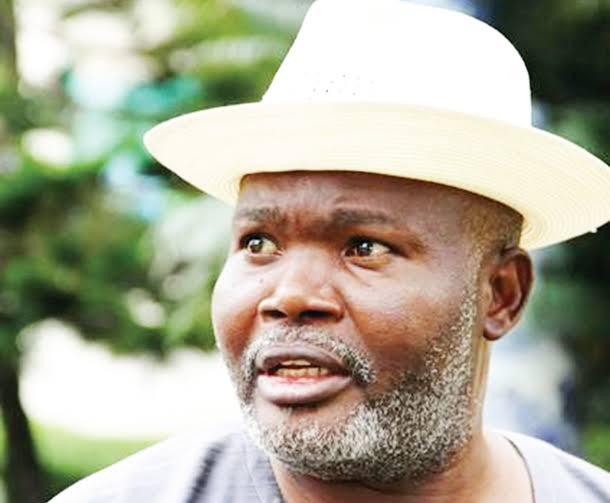On July 5, the Boko Haram breakaway faction Islamic State West Africa Province (ISWAP) led a successful attack on a well-secured prison in Nigeria’s capital, Abuja. The group shot its way into the Kuje Medium Security Custodial Centre after overpowering security guards in a well-coordinated assault.
The government said 879 detainees escaped, including all 68 imprisoned Boko Haram members. About half the escapees were recaptured, one confirmed to be from the violent extremist group.
The attackers may have responded to Islamic State’s (ISIS) call in April to free jailed fighters. Detained Ansaru (an al-Qaeda affiliate in Nigeria) members are also believed to have escaped.
This is the latest in a string of high-profile strikes that question the government’s ability to protect its citizens. The attack came hours after President Muhammadu Buhari’s convoy was targeted by bandits in his home state of Katsina. Less than a week before, attackers invaded a mine site, killing about 40 security personnel and abducting four Chinese nationals. And a month ago, unknown shooters killed 40 worshippers in a church in Ondo State.
Last week’s prison break, the fourth in a year, is perhaps the most significant incident for Nigeria, the Lake Chad Basin and beyond, considering that it involved Boko Haram detainees. The region is facing a surge in terror attacks, notably from ISWAP. The group has expanded and become the region’s prime security threat.
This isn’t the first time Boko Haram has targeted detention facilities. In December 2013, the group attacked the Maiduguri air force base, freeing its members and destroying five aircraft. Three months later, the terrorists bridged Maiduguri’s well-fortified Giwa army barracks, freeing detained members.
How was ISWAP able to carry out this latest attack? Kuje is one of Nigeria’s most secure prisons. The Nigerian Correctional Service said that at the time of the attack, the jail was guarded by soldiers, police, Civil Defence Corps, the State Security Service and the prison’s armed squad.

Broken walls are seen at the Kuje maximum prison in Abuja after a rebel attack, Wednesday, July 6, 2022. At least 600 inmates escaped in a jailbreak in Nigeria’s capital city, officials said Wednesday, blaming the attack on Islamic extremist rebels. About 300 have been recaptured, authorities said. (AP Photo/Chinedu Asadu)
The facility is less than 50 km from the Presidency, and over 800 km from ISWAP’s comfort zone, Borno State in north-east Nigeria. The operation’s resources (both human and material), planning and coordination would have been massive. The group’s success shows its strength and determination to spread terror beyond Nigeria’s north-east.
Could ISWAP have had help from inside the prison or the security forces? Buhari was visibly angry when he visited the prison after the attack. He questioned the intelligence system in place, the attackers’ easy access to the facility, and their ability to leave without a trace. The arrest of two police officers who allegedly communicated with Boko Haram after their escape suggests there may have been collusion.
Former fighters who had left the group told the Institute for Security Studies (ISS) that while one of the escaped terrorists was in jail, he communicated easily with ISWAP members outside. The detainee – reportedly a pioneer member of Boko Haram – apparently owned a cellphone that he used to send dozens of messages, especially sermons, through voice notes, to ISWAP members.
ISS security monitoring in the Lake Chad Basin shows that over the past year, following Boko Haram leader Abubakar Shekau’s death, ISWAP has sought to expand its territories beyond the eight Boko Haram-affected regions. These are Borno, Adamawa and Yobe states in north-east Nigeria; North and Far North regions in Cameroon; Lac and Hadjer-Lamis regions in Chad; and Diffa Region in Niger.
The growth has seen the group establish new cells in Nigeria – Fufore Forest in Adamawa State, Falgore Forest in Kano State, north-west Nigeria, and an unidentified location in Kogi State, north-central Nigeria.
Already the results are clear. For the first time since its formation in 2016, ISWAP has carried out attacks in Taraba, Kogi and Niger states and Abuja. These were all in 2022 and outside the BAY states (Borno, Adamawa and Yobe), with new cells spearheading the strikes. ISS data reveals that the Taraba State attacks were conducted by the cell in Fufore, while the Kogi, Niger and Abuja incidents were led by the Kogi cell.
Using these cells, ISWAP significantly reduces the risks and logistical requirements associated with attacks far from its Borno State base. For instance, the 200 km distance from Fufore to Jalingo, the Taraba State capital, is less than half the 450 km distance between Borno and Taraba state.
The ISS data also suggests that the Kuje prison break involved a collaboration between Ansaru and ISWAP. Ansaru, which is affiliated with al-Qaeda, wants to work with ISWAP. And while ISWAP is receptive, it requires ISIS’ backing to ally with Ansaru. In the interim, the two groups have maintained informal communication. Ansaru has been touting its reconnaissance on Kuje prison and another facility holding Boko Haram members in Niger State.
ISS has not been able to verify that ISWAP has accepted Ansaru’s overtures, but the two may have worked together, even if only for the jailbreak. Ansaru’s familiarity with Nigeria’s north-west and north-central regions is an advantage. Also, ISWAP’s Kogi cell is relatively new and small, according to ISS sources in the area. So joining forces to free their members would be a win-win for ISWAP and Ansaru.

ISWAP Fighters display their flag
While the jailbreak investigation continues, authorities must consider the attack’s implications. ISWAP and Ansaru would see this as a major victory and morale booster, especially as some escapees were pioneer Boko Haram members. These senior figures bring leadership skills that could deliver more recruits and attacks.
The government must urgently work to prevent these violent extremist groups from amalgamating and counter the threat if they do join. Both groups share common enemies – the state and non-Muslims.
So far, officials have responded to the jailbreak with shock, condemnation, and the usual promises of bringing perpetrators to justice. That is not enough. The government must review its counter-terrorism strategy, which has proved ineffective and was last assessed in 2016. Every region in the country now faces security threats, and those tasked with protecting Nigerians should be held accountable.
Malik Samuel, Researcher, Institute for Security Studies (ISS) Regional Office for West Africa, the Sahel, and the Lake Chad Basin
- Research for this article is funded by the governments of the Netherlands and Norway.
- Culled from www.premiumtimesng.com


























